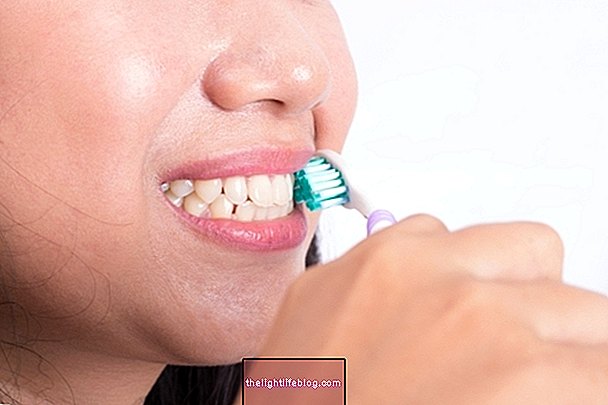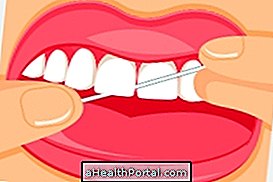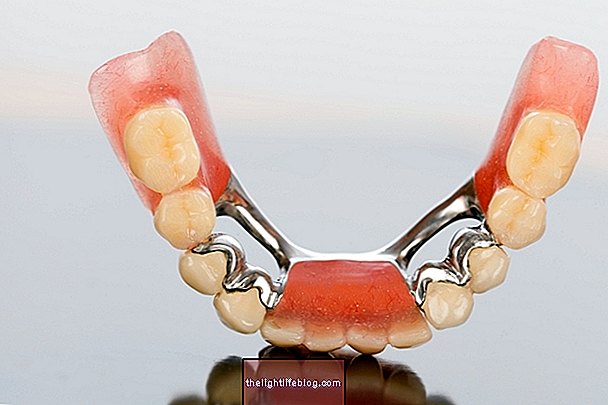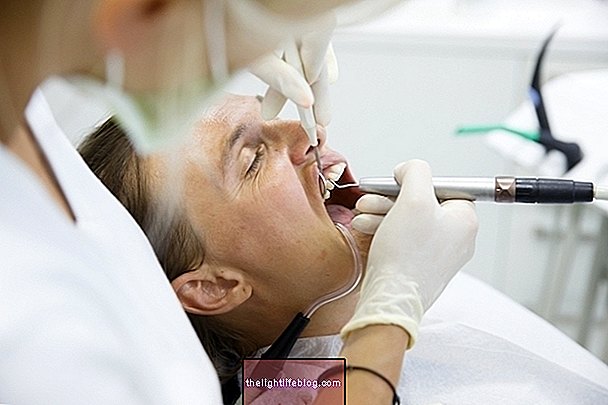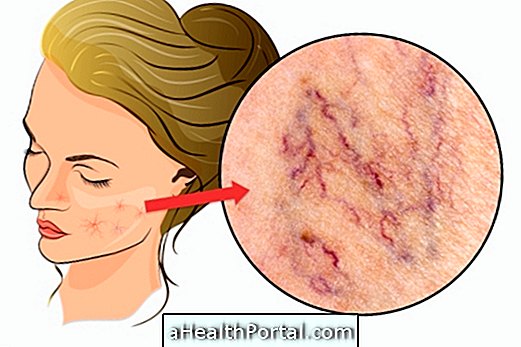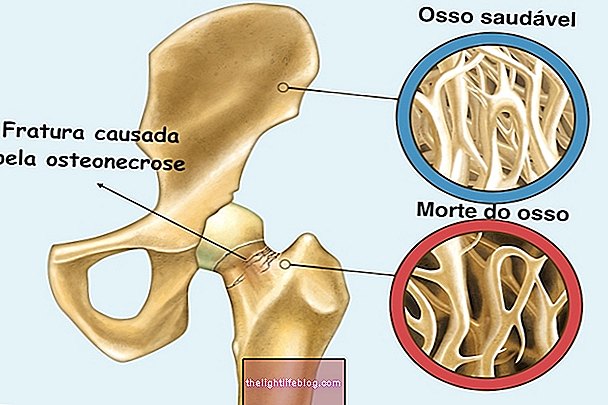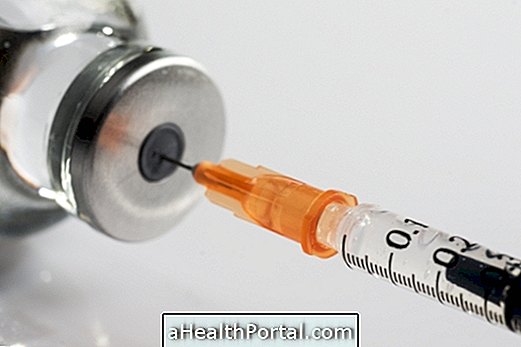The dental abscess or periapical abscess is a kind of pouch filled with pus caused by a bacterial infection, which can occur in different regions of the tooth. In addition, the abscess can also occur in the gum near the root of the tooth, the so-called periodontal abscess.
A dental abscess usually happens due to an untreated caries, an injury or poorly performed dental work.
Treatment consists of fluid drainage from the abscess, devitalization, administration of antibiotics or, in more severe cases, extraction of the affected tooth.

Possible symptoms
The signs and symptoms that can be caused by an abscess are:
- Very intense and persistent pain that can radiate to the jaw, neck or ear;
- Sensitivity to cold and hot;
- Sensitivity to pressure and movements of chewing and lashing;
- Fever;
- Acute swelling of gums and cheeks;
- Swelling in the lymph nodes of the neck.
In addition to these symptoms, if the abscess ruptures, you may feel a bad smell, bad taste, a salty liquid in the mouth and relief from pain.
What causes
The dental abscess occurs when the bacteria invade the dental pulp, which is an internal structure of the tooth formed by connective tissue, blood vessels and nerves. These bacteria can enter through a caries or a crack in the tooth and spread to the root. Here's how to identify and treat tooth decay.
Having poor dental hygiene or a hygiene rich in sugars increases the risk of developing a dental abscess.
How is the treatment done?
There are several ways to treat a dental abscess. The dentist may choose to drain the abscess by making a small cut to facilitate the outflow of fluid or a devitalization of the tooth in order to eliminate the infection but save the tooth, which consists of removing the dental pulp and abscess and then restore the tooth.
However, if it is no longer possible to save the tooth, the dentist may have to extract it and drain the abscess in order to treat the infection effectively.
In addition, antibiotics may be given if the infection spreads to other teeth or other regions of the mouth, or in people with a weakened immune system.

How to Prevent a Dental Abscess
To prevent an abscess from developing, preventive measures may be taken, such as:
- Use an elixir with fluoride;
- Wash teeth properly, at least 2 times a day;
- Floss at least once a day;
- Replace the toothbrush every three months;
- Reduce sugar consumption.
In addition to these prevention measures, it is also recommended to go to the dentist every 6 months in order to make an assessment of oral health and dental cleaning if necessary.
